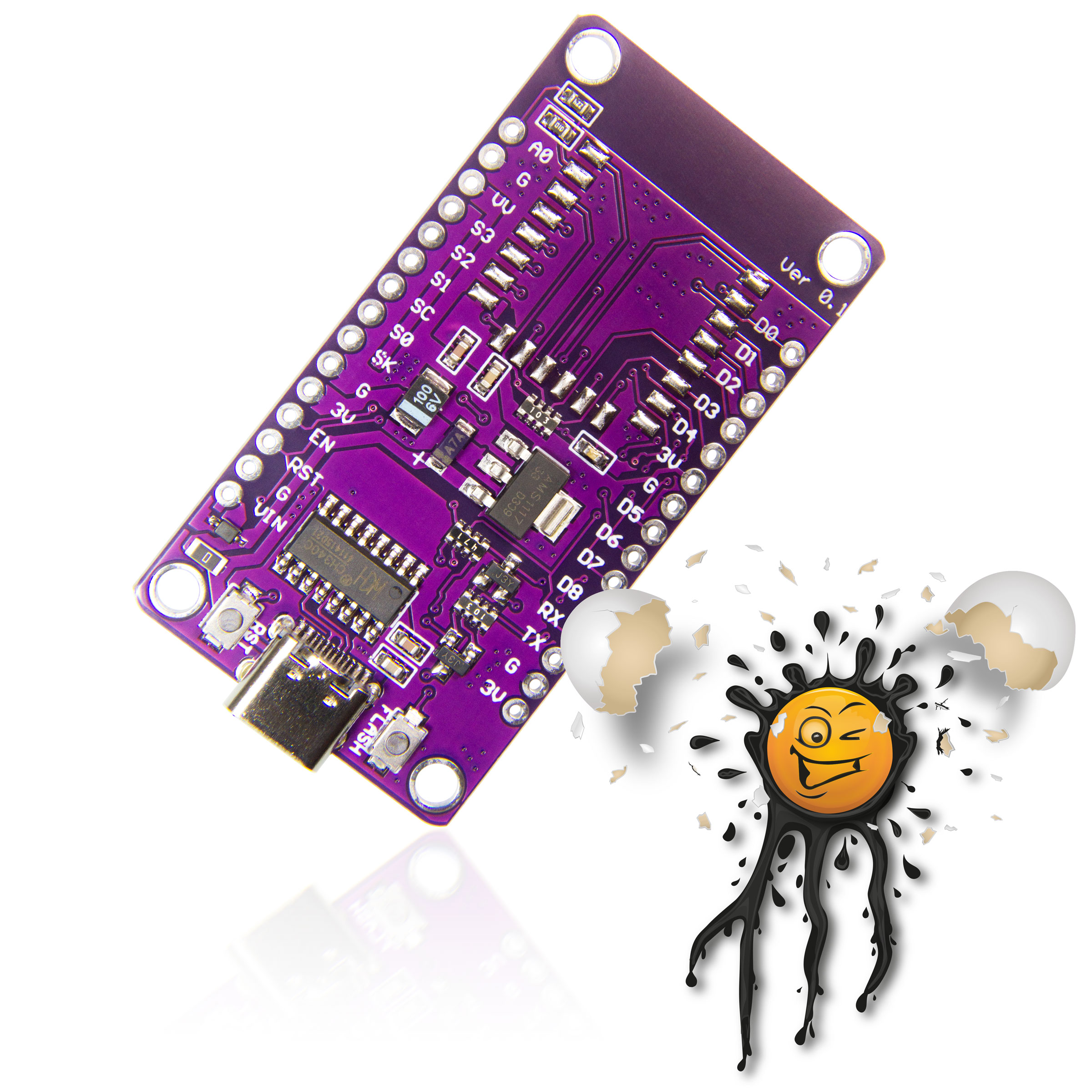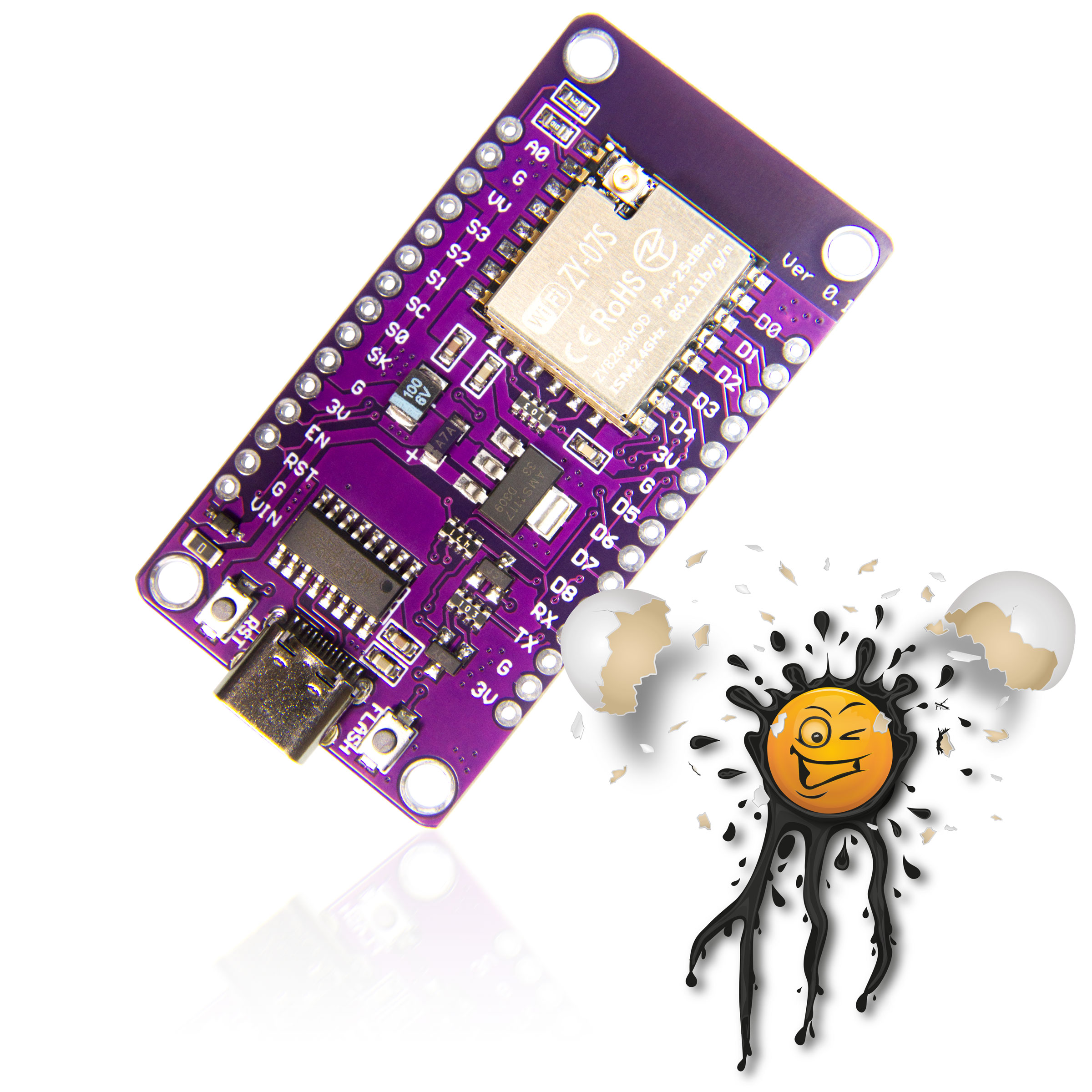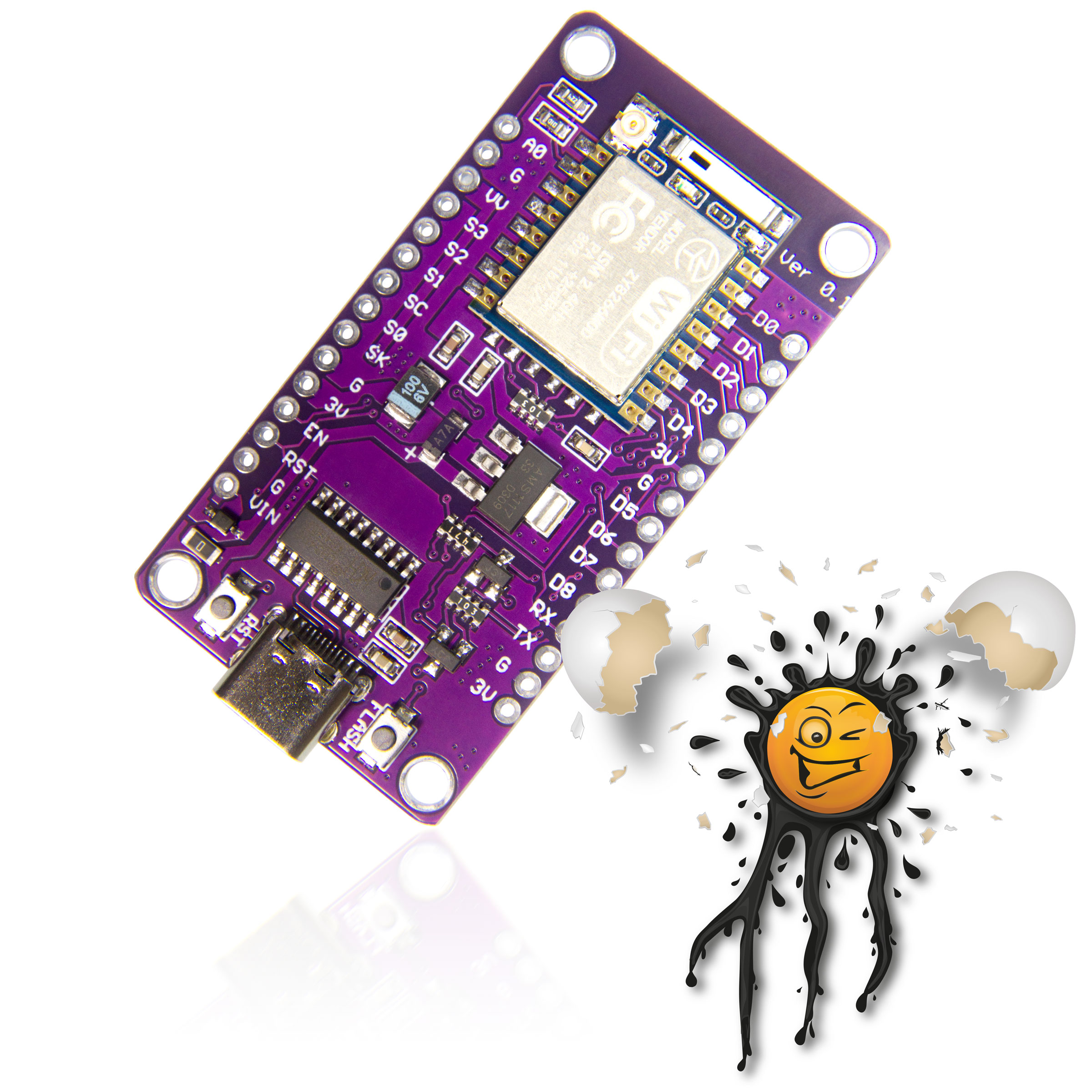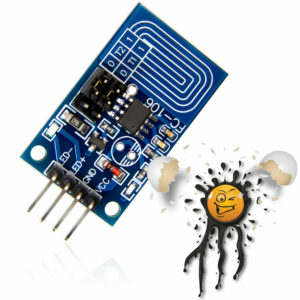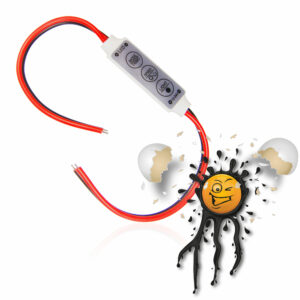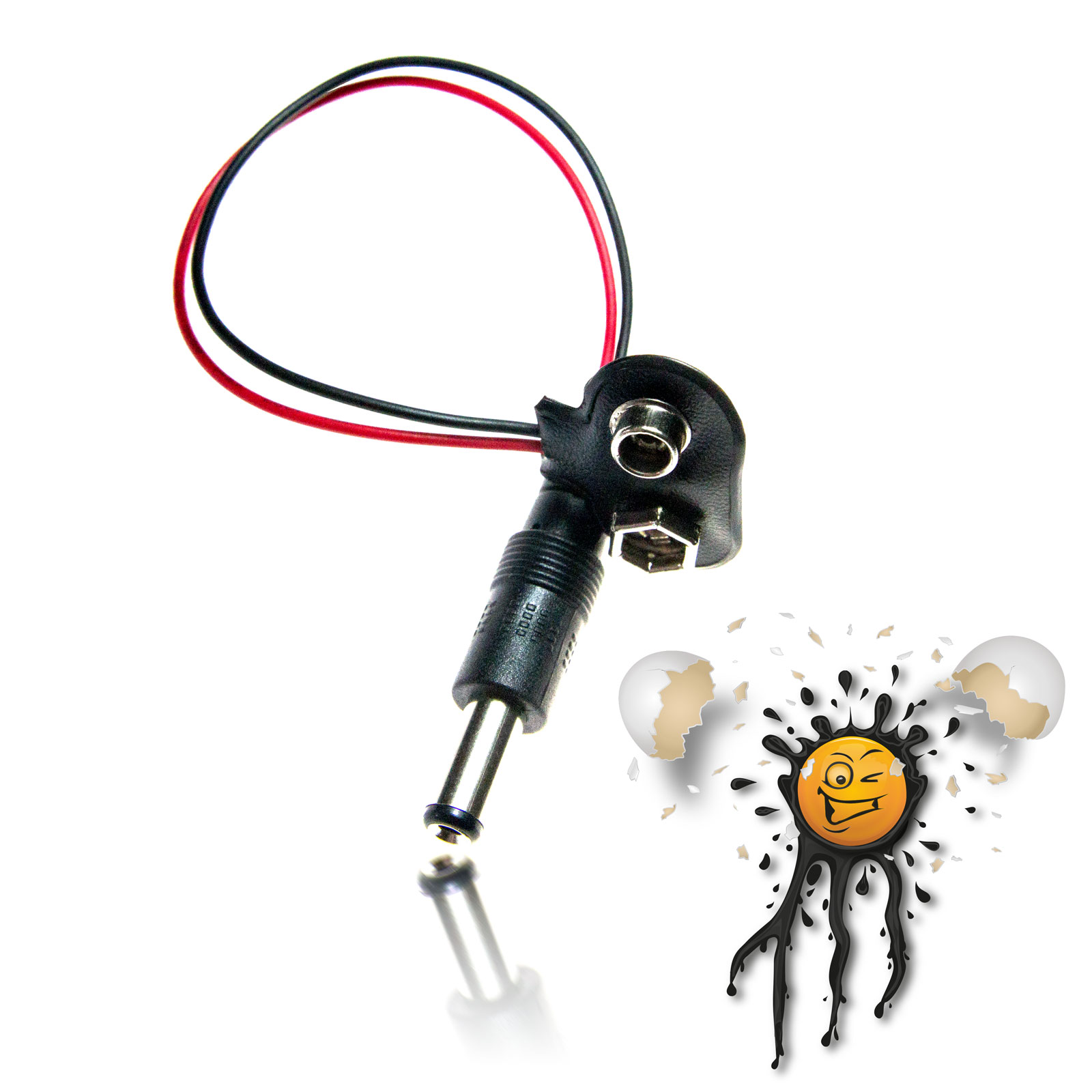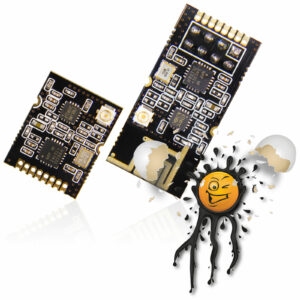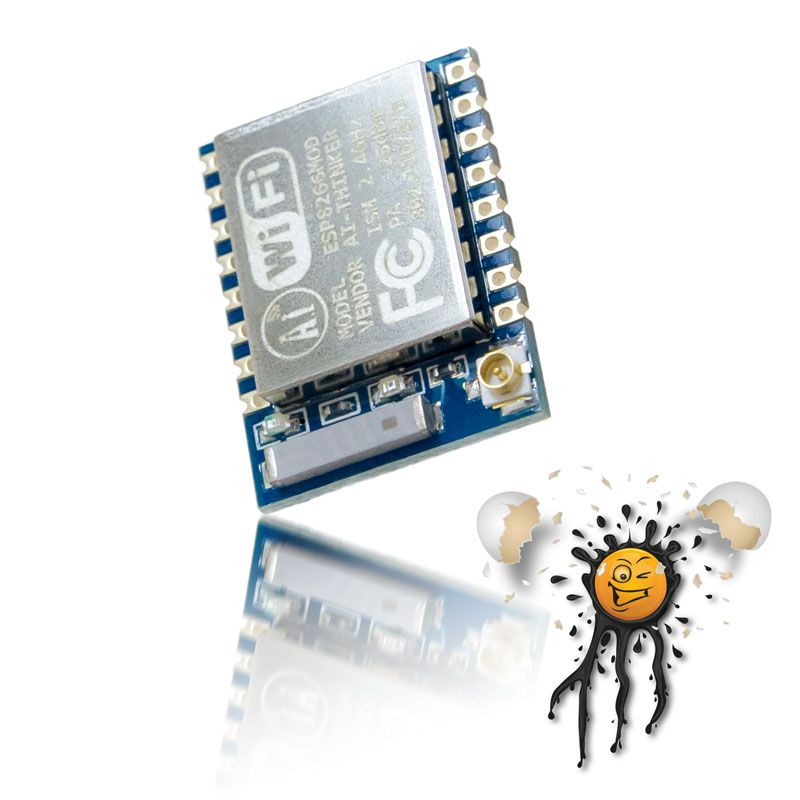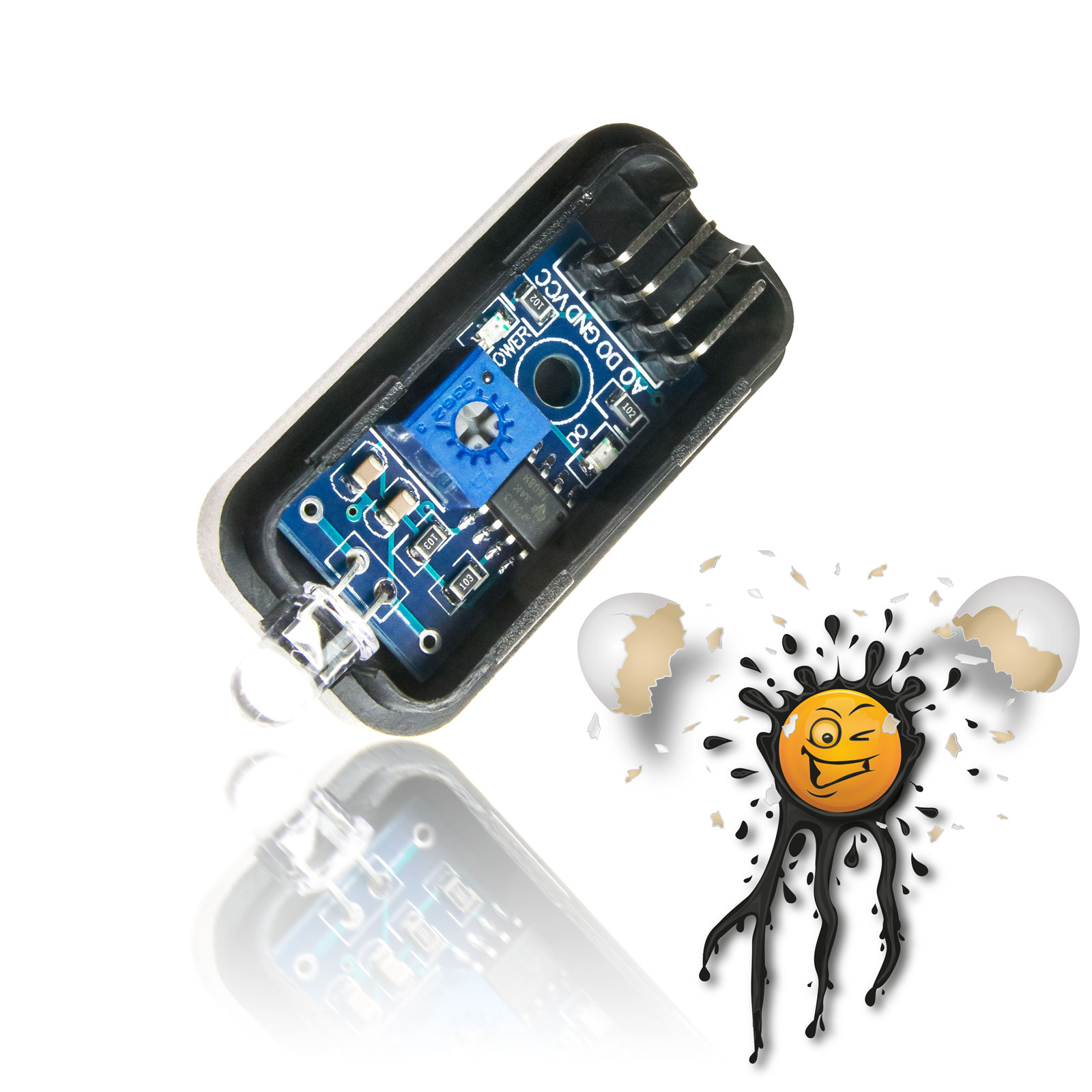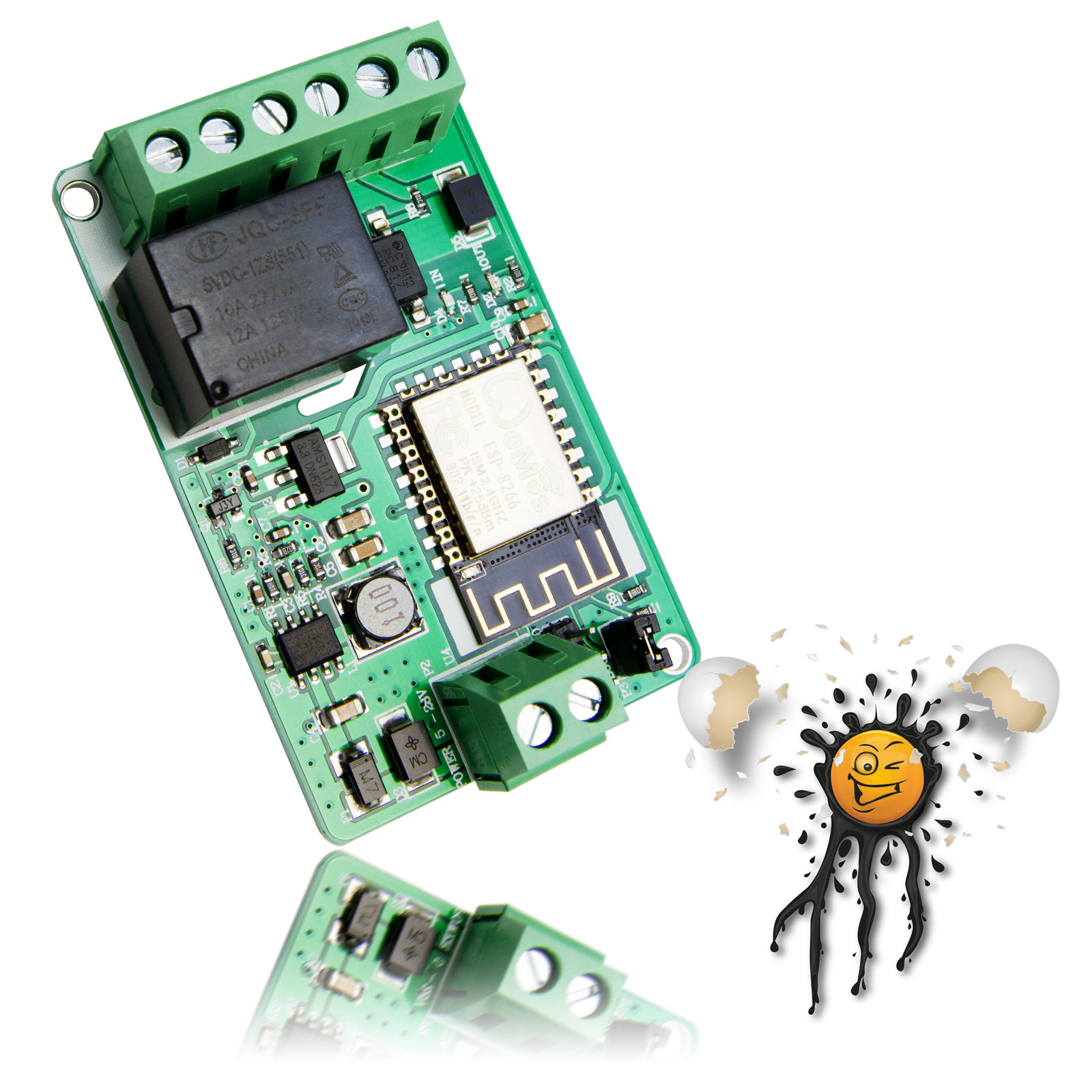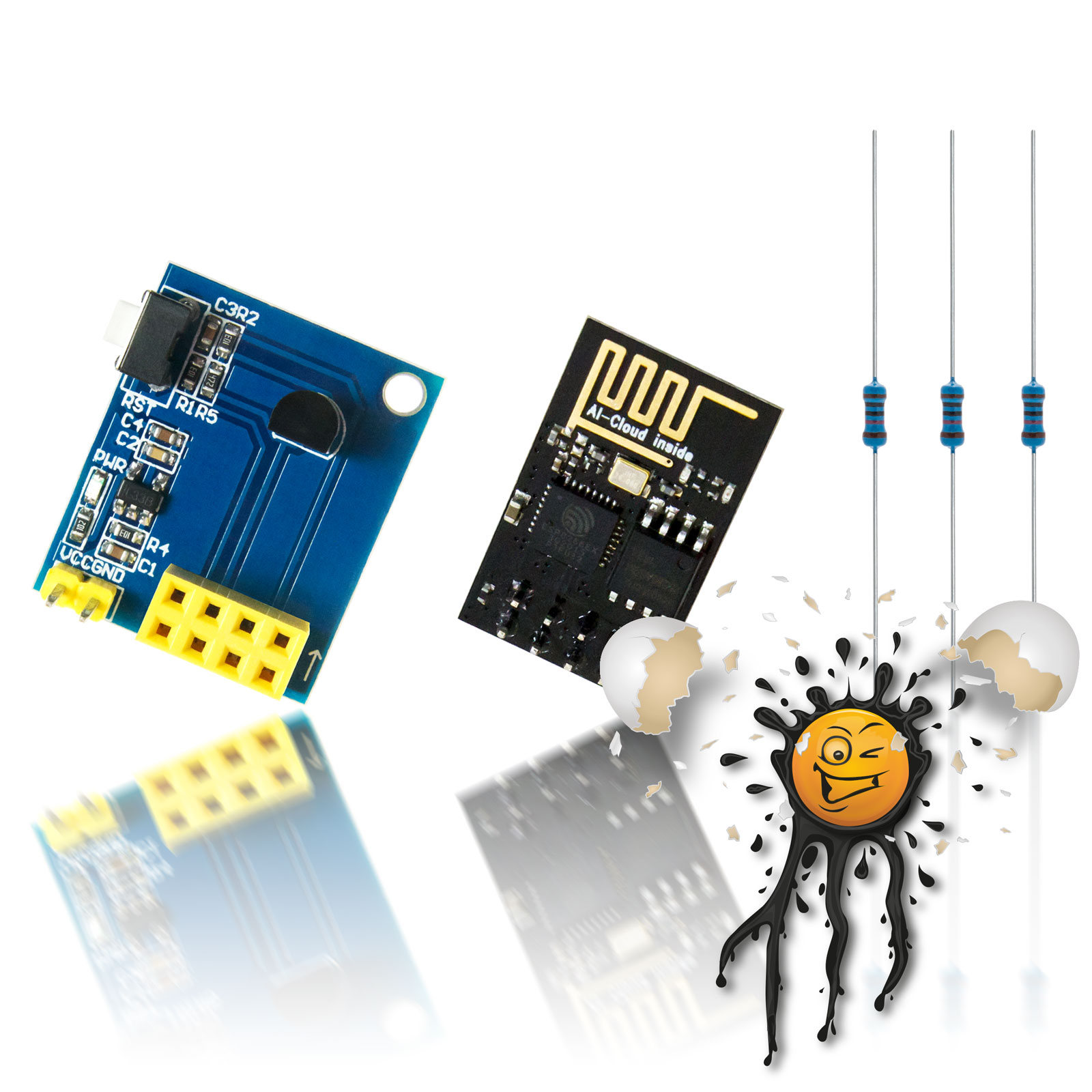|
USB-C ESP8266 NodeMCU Development Boards / Adapter incl. Pin Headers © androegg
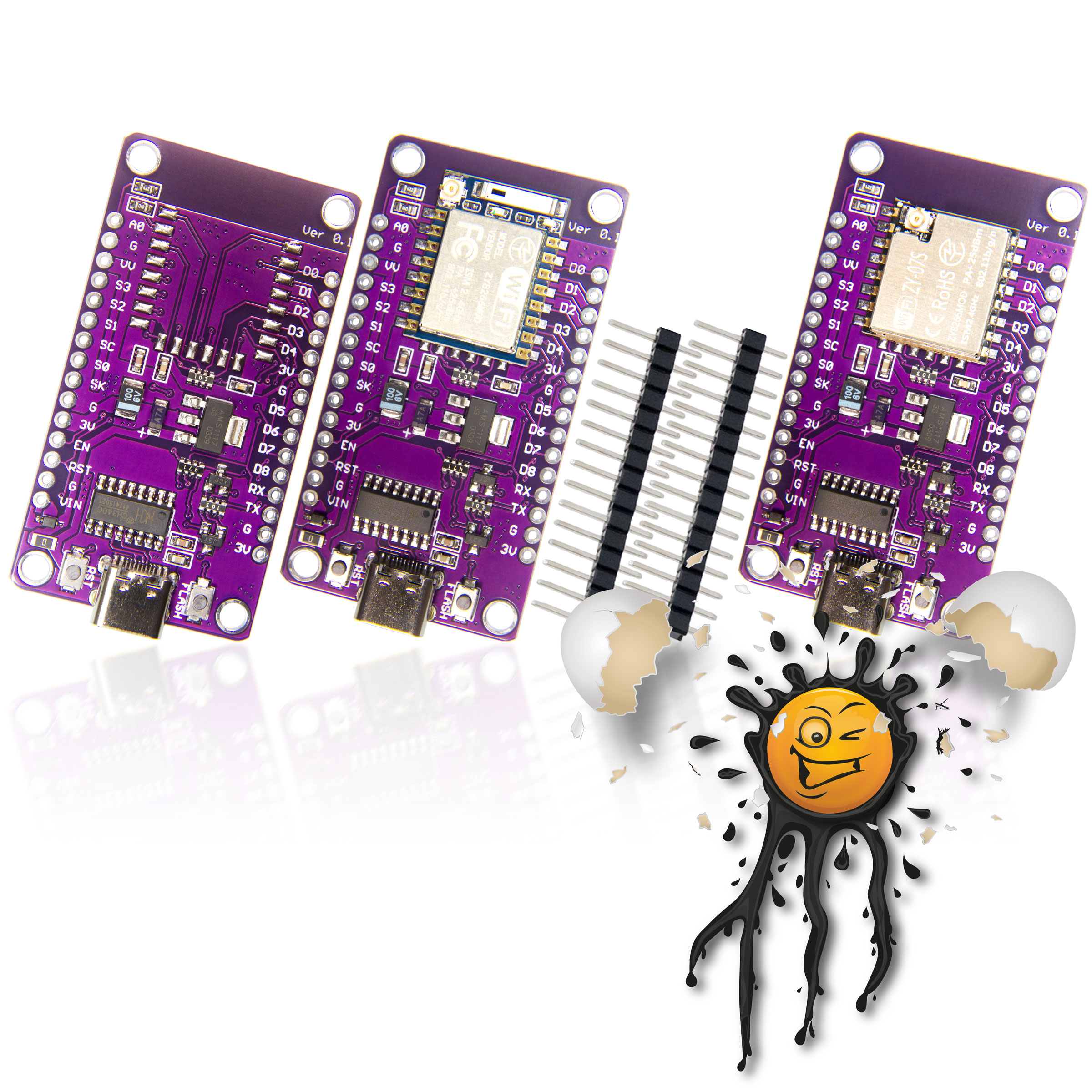
USB-C ESP8266 NodeMCU Development Adapter © androegg
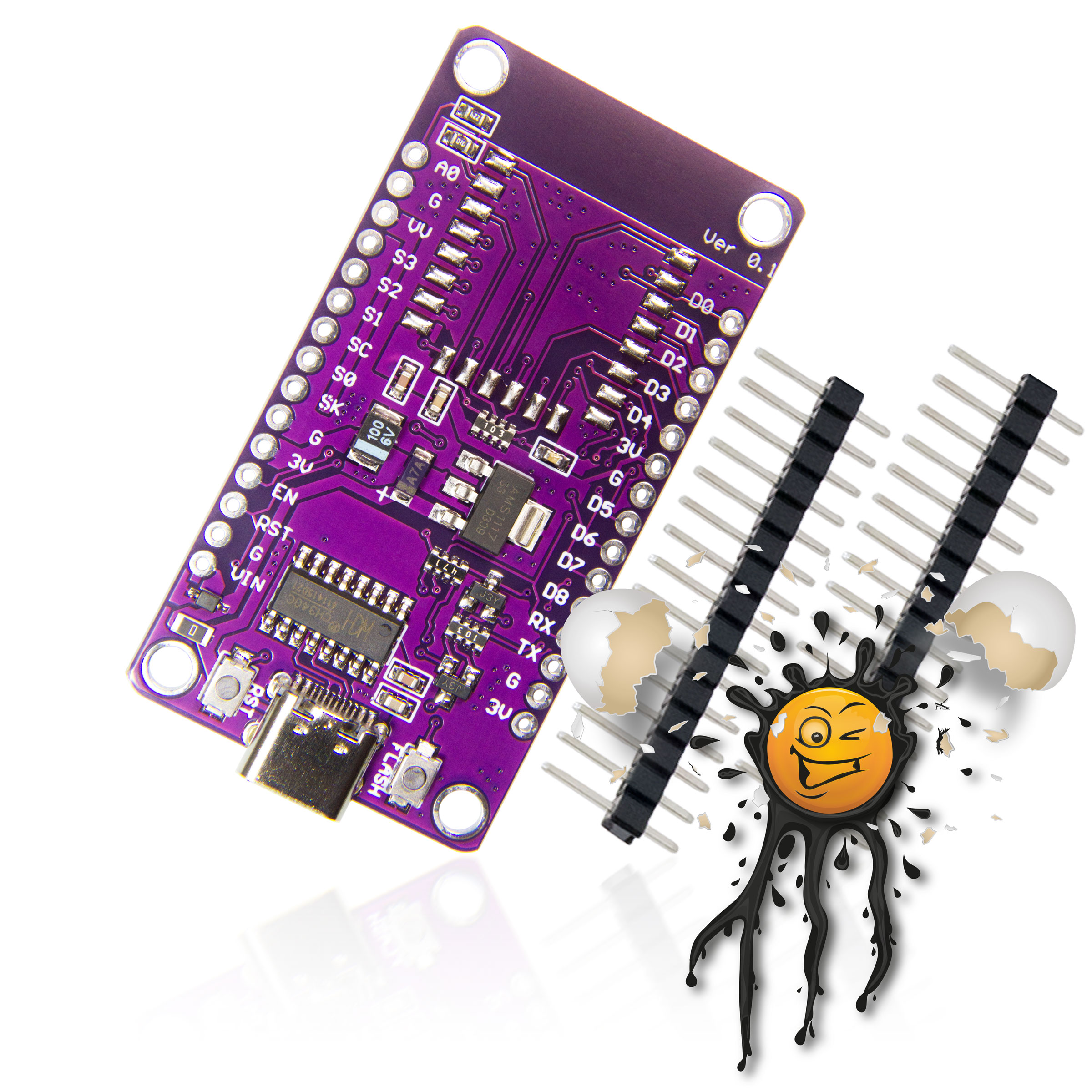
USB-C ESP8266 ESP-07 NodeMCU Development Adapter © androegg
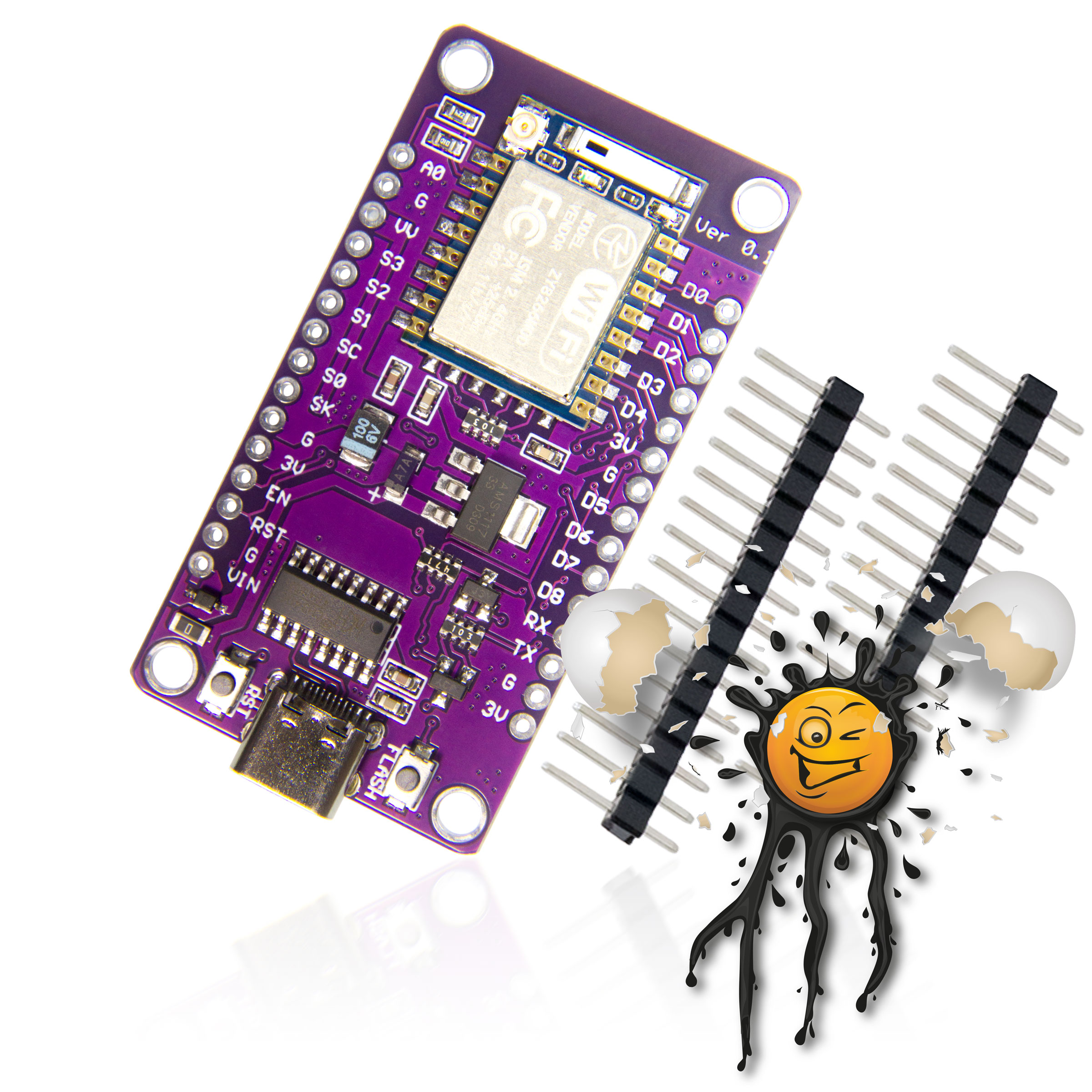
USB-C ESP8266 ESP-07S NodeMCU Development Adapter © androegg
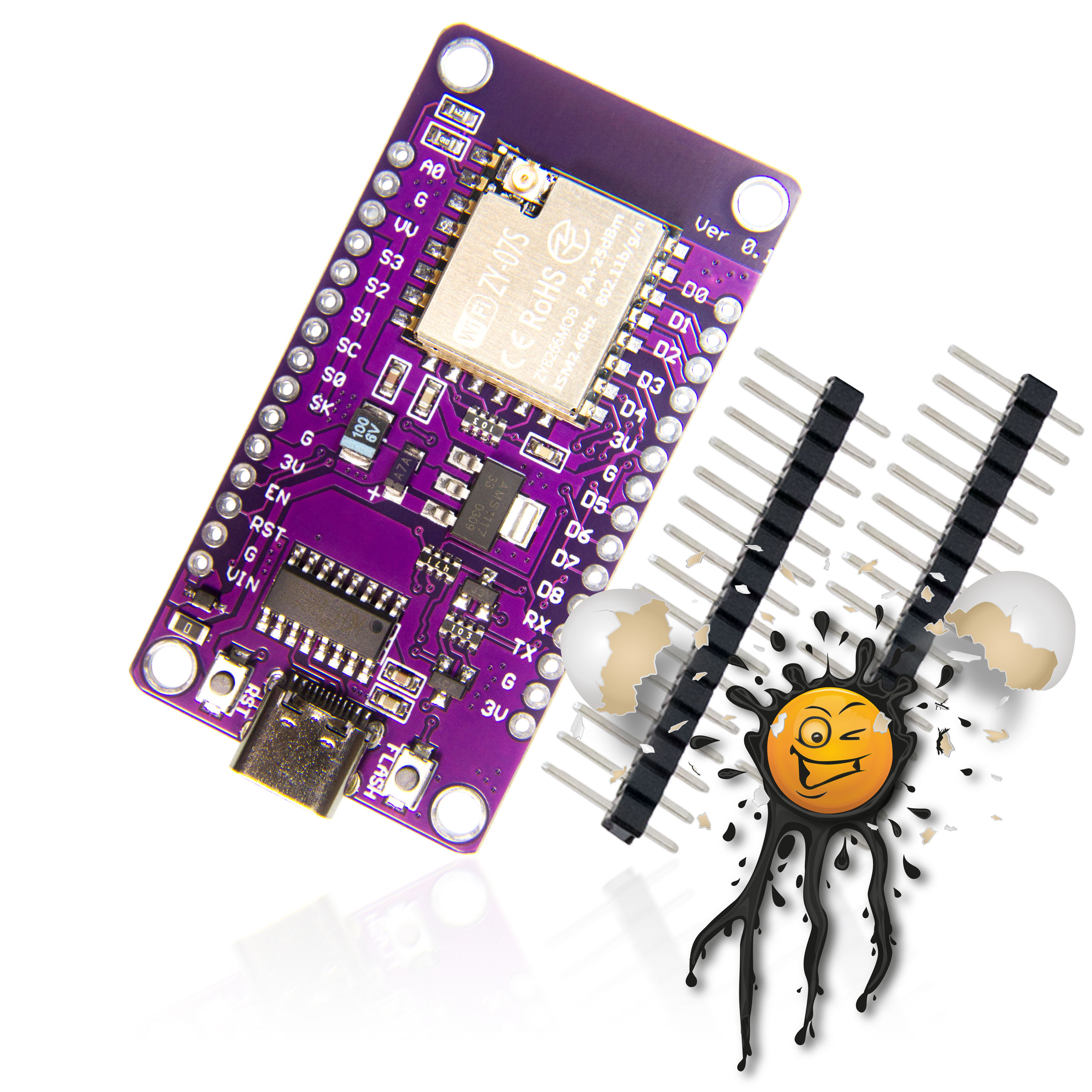
|
|
Das NodeMCU USB-C Entwicklerboard ist wie folgt verfügbar:
- Entwicklerboard Adapter (ohne ESP8266 Modul, passend für typische ESP8266 Module wie ESP-12)
- ESP-07 Entwicklerboard, mit ESP-07 Modul bestückt
- ESP-07S Entwicklerboard, mit ESP-07S Modul bestückt
Der Lieferumfang umfasst:
- 1 Stück Entwicklerboard
- 2 Stück Pinleisten
Das USB-C NodeMCU Entwicklerboard verfügt über
- CH340 USB TTL Konverter
- AMS1117 3.3 Spannungskonverter
- Reset Taster
- Flash Taster
USB-C NodeMCU EntwicklerBoard
Neben den typischen Schnittstellen wie beispielsweise
- GPIO
- UART / RX TX
- SPI
- I2C
- ADC
- usw.
verfügt das NodeMCU Entwickler Board über einen integrierten USB TTL / serial Konverter basierend auf dem CH340 um eine direkte serielle Verbindung über USB-C herzustellen.
Zur Inbetriebnahme muss das NodeMCU Development Board lediglich mit einer freien USB Schnittstelle verbunden werden. Neben der Datenkommunikation erfolgt zusätzlich die Spannungsversorgung über die integrierte Micro USB-C Schnittstelle.
Im Vergleich zu typischen ESP8266 Modulen erfolgt sowohl der Flash Modus als auch ein erforderliches Reset komfortabel mittels Tastendruck. Ein umständliches Brücken des GPIO0 unter Zuhilfenahme von Widerständen ist hier nicht notwendig.
|
The NodeMCU USB-C Development Board available in 3 Versions
- Development Board Adapter (without ESP8266 Module)
- ESP-07 Development Board, with ESP-07 Module assembled
- ESP-07S Development Board, with ESP-07S Module assembled
The NodeMCU Develoment Board incl.
- 1 pcs. NodeMCU Development Board
- 2 pcs. Pinheader
The ESP8266 USB-C NodeMCU Development Board has
- CH340 USB TTL Converter
- AMS1117 3.3 Voltage Converter
- Reset Button
- Flash Button
USB-C NodeMCU Development Board
Besides typical Interfaces such as
- GPIO
- UART / RX TX
- SPI
- I2C
- ADC
- …
the NodeMCU USB-C Devolpment Board has also an integrated USB TTL / serial Converter, based on CH340 to enable a serial connecteion directly thru USB-C interface.
Compared to typical ESP8266 Module there is no need connecting GPIO thru resistors to GND for Flashing nor Reset, simply press integrated FLASH or RST Button.
|
ESP32-C2 NodeMCU Board Features:
- 5V Power Supply thru Micro USB-C Connector
- CH340 USB TTL Converter on Board (connected to USB-C)
- CPU and Memory:
• 32-bit RISC-V single-core processor, up to 120 MHz
• CoreMark® score: – 1 core at 120 MHz: 305.42 CoreMark; 2.55 CoreMark/MHz
- • 576 KB ROM • 272 KB SRAM (16 KB for cache)
- • In-package flash (see details in Chapter 1 ESP8684 Series Comparison)
- • Access to flash accelerated by cache
- • Supports flash in-Circuit Programming (IC
- WiFi
- • IEEE 802.11 b/g/n-compliant
- • Supports 20 MHz bandwidth in 2.4 GHz band
- • 1T1R mode with data rate up to 72.2 Mbps
- • Wi-Fi Multimedia (WMM)
- • TX/RX A-MPDU, TX/RX A-MSDU
- • Immediate Block ACK
- • Fragmentation and defragmentation
- • Transmit opportunity (TXOP)
- • Automatic Beacon monitoring (hardware TSF)
- • 3 × virtual Wi-Fi interfaces
- • Simultaneous support for Infrastructure BSS in Station mode, SoftAP mode, Station + SoftAP mode, and promiscuous mode Note that when ESP8684 series scans in Station mode, the SoftAP channel will change along with the Station channel
- • Antenna diversity
- Bluetooth
- • Bluetooth LE: Bluetooth 5
- • High power mode20 dBm
- • Speed: 125 kbps, 500 kbps, 1 Mbps, 2 Mbps
- • Advertising extensions
- • Multiple advertisement sets
- • Channel selection algorithm #2
- • Internal co-existence mechanism between Wi-Fi and Bluetooth to share the same antenna
- Power Management Unit with four power mod
- Security
- • Secure boot
- • Flash encryption
- • 1024-bit OTP, up to 256 bits for use
- • Cryptographic hardware acceleration: – ECC – SHA Accelerator (FIPS PUB 180-4)
- • Random Number Generator (RNG)
- • Clock glitch filter
|


